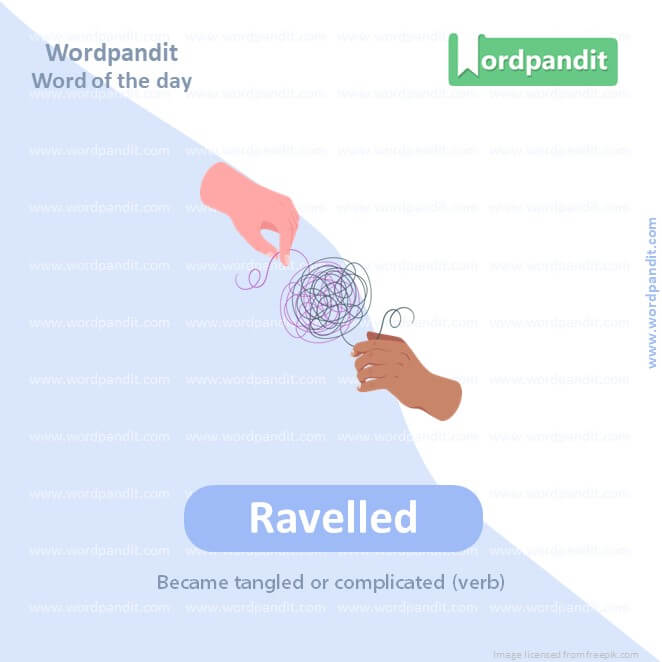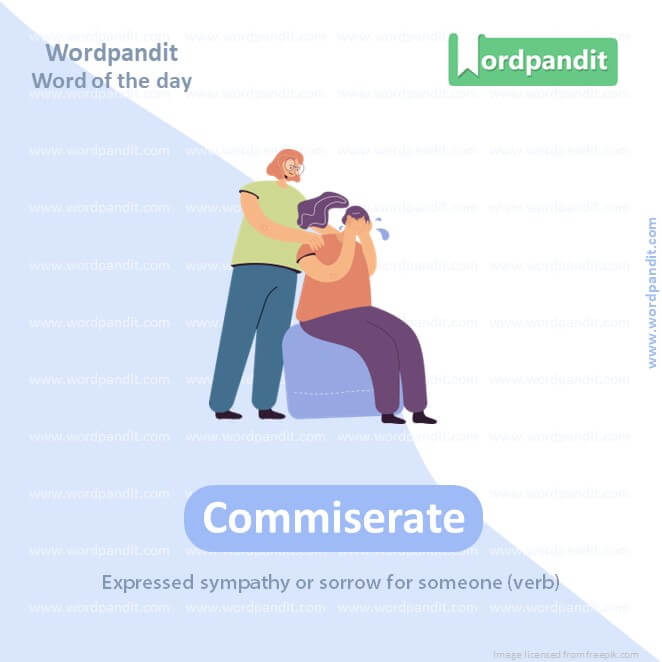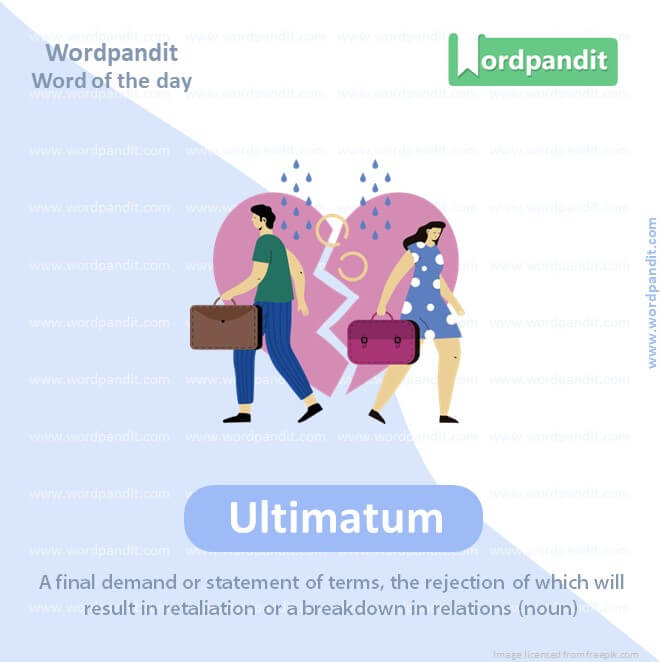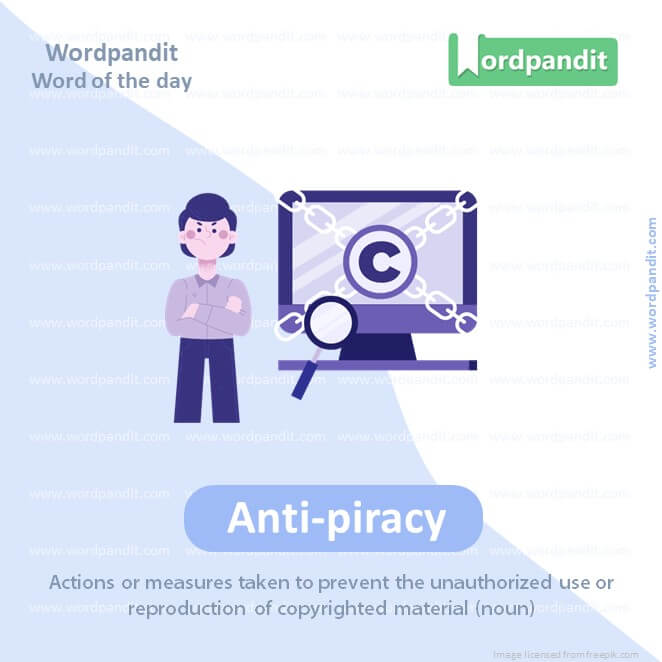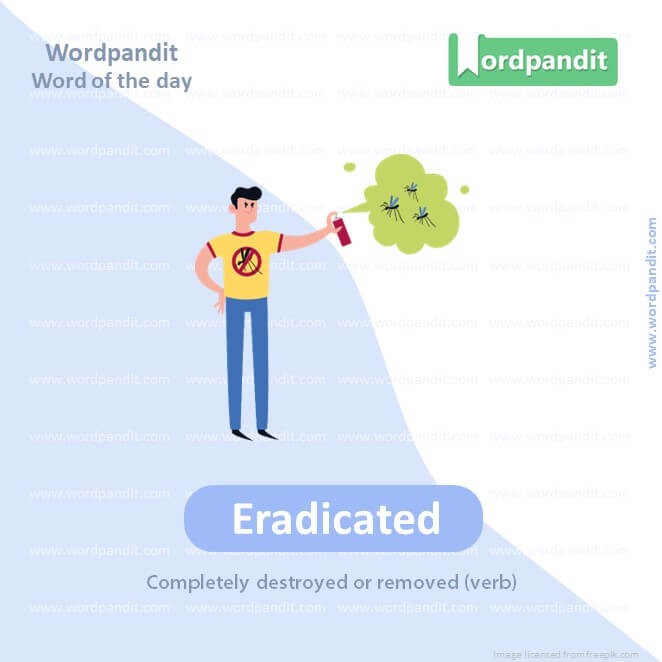Daily Vocabulary from Indian Newspapers and Publications
Welcome to Wordpandit’s Indian Vocabulary Hub
At Wordpandit, we understand the importance of staying rooted in the local context while expanding your language skills. This section focuses on enriching your vocabulary with words and phrases drawn from India’s leading newspapers and publications, ensuring you're learning vocabulary that is practical, relevant, and uniquely Indian.
Why Indian Sources Matter
We believe that the best way to master any language is by immersing yourself in local content. That’s why we carefully curate vocabulary from top Indian publications, including:
- The Hindu
- The Times of India
- The Economic Times
- Hindustan Times
- Live Mint
- The Indian Express
- And many others...
Stay Updated, Stay Relevant
With daily updates from Indian news sources, you’ll be consistently learning words that reflect the trends and shifts in Indian society and culture. Our focus is to provide vocabulary that enhances your understanding of the language in an Indian context.
How Wordpandit Supports Your Goals
Whether you’re preparing for exams, aiming to improve your professional communication, or simply want to stay connected with the latest Indian vocabulary, Wordpandit is here to guide you every step of the way.
Learn with a Practical Approach
Our interactive learning methodology includes real-world examples, engaging activities, and context-specific usage to ensure that every word becomes part of your active vocabulary.
Dive into Indian Vocabulary Today!
Why Choose Wordpandit?
Practical Learning: Focus on words you'll actually encounter in real-world reading, enhancing your comprehension and communication skills.
Diverse Content: From current affairs to scientific breakthroughs, our varied sources expose you to vocabulary across multiple domains.
Effortless Integration: Make Wordpandit a part of your daily routine. Just a few minutes each day can significantly boost your lexicon over time.
Your Path to Vocabulary Mastery
- Visit our Daily Vocabulary section regularly
- Explore new words and their usage in context
- Practice incorporating these words into your own writing and speech
- Track your progress as your vocabulary expands
Start Your Journey Today
Embark on your vocabulary enhancement journey with Wordpandit. By consistently engaging with our daily posts, you'll build a robust vocabulary that serves you well in academic, professional, and personal contexts.
Remember, a word a day keeps linguistic limitations at bay. Make Wordpandit your daily companion in the quest for vocabulary excellence!
WORD-1: Ravelled
Context:
"Our ravelled sleeve of care gets no stitches from the elusive sleep and we are lucky if our 40 winks settle for 29." - Times of India
Explanatory Paragraph:
The word “ravelled” paints an image of something tangled or frayed, especially when referring to emotions, thoughts, or even fabric. In the quoted sentence, it metaphorically suggests a mind or life that feels worn out and unhealed due to the lack of restful sleep. The phrase "ravelled sleeve of care" originates from Shakespeare, implying emotional or psychological disarray that only sleep can repair.
Meaning: Tangled, frayed, or disorganized (Adjective/Verb)
Pronunciation: RAV-uhld
Difficulty Level: ⭐⭐⭐ Intermediate
Etymology: From Middle Dutch *ravelen*, meaning "to tangle or unweave"; later adopted into English in the 16th century.
Prashant Sir's Notes:
This word has a poetic duality—"to ravel" can mean both to tangle and to untangle depending on the context. Shakespeare used it beautifully to describe mental unrest. Learn this one for both literary flair and metaphorical richness.
Synonyms & Antonyms:
Synonyms: tangle, fray, knot, entangle, snarl
Antonyms: untangle, smooth, organize, weave, compose
Usage Examples:
- Her thoughts ravelled into anxiety as the deadline approached.
- The old sweater had ravelled at the cuffs after years of use.
- He tried to ravel the complex emotions behind his sudden anger.
- The mystery began to ravel as the detective uncovered new clues.
Cultural Reference:
"Sleep that knits up the ravelled sleeve of care..." — William Shakespeare, *Macbeth*
Think About It:
Can something be simultaneously ravelled and unravelled, like a mind caught in a loop of overthinking?
Quick Activity:
Use the word “ravelled” in a sentence describing your mental state after a long week, then try replacing it with its antonym. Notice the shift in tone!
Memory Tip:
Think of a *"ravelling thread"*—messy, loose, and twisted—just like your thoughts when you’re overworked or sleepless.
Real-World Application:
“Ravelled” is useful in writing or speech when describing confusion, disorder, or frayed situations—be it in fabric, thoughts, or life events. Writers often use it to poetically convey emotional tension.
WORD-2: Commiserate
Context:
"We commiserate with others of our ilk. The sleepless are global, not just in Seattle." - Times of India
Explanatory Paragraph:
To "commiserate" means to share in someone's sorrow or express sympathy. It implies a sense of emotional solidarity—feeling bad with someone, not just for them. In the given context, it suggests that sleepless individuals around the world are united in their experience and are emotionally connecting with each other over their shared plight. The word carries a compassionate and human touch, often used when people console or empathize with one another.
Meaning: To express or feel sympathy or pity; to empathize (Verb)
Pronunciation: kuh-MIZ-uh-rate
Difficulty Level: ⭐⭐ Moderate
Etymology: From Latin *commiserari*, meaning “to pity,” from *com-* (with) + *miserari* (to lament).
Prashant Sir's Notes:
This is an elegant alternative to simply saying “feel sorry for.” Notice how the prefix “com-” adds the idea of “togetherness”—this word isn’t about feeling bad *for* someone, it’s about feeling bad *with* them. That’s a big difference in tone and depth.
Synonyms & Antonyms:
Synonyms: empathize, sympathize, console, comfort, pity
Antonyms: disregard, ignore, mock, neglect, scorn
Usage Examples:
- I commiserated with my friend after her tough interview.
- She commiserates with new mothers dealing with sleep deprivation.
- The players commiserated with each other after the heartbreaking loss.
- Even strangers in the support group commiserated like old friends.
Cultural Reference:
"When we honestly ask ourselves which person in our lives means the most to us, we often find it is those who… have chosen rather to share our pain and touch our wounds with a gentle and tender hand." — Henri Nouwen
Think About It:
Is true commiseration more powerful than offering solutions? Why do we often feel better when someone simply says, “I get it”?
Quick Activity:
Write a short message to someone you know who’s going through a tough time. Try using the word “commiserate” naturally in your message.
Memory Tip:
Think: *co*-miserate = *co*-miser-y = sharing misery *together*.
Real-World Application:
“Commiserate” is useful in emotional conversations, writing condolence messages, or showing empathy in personal and professional contexts—especially when emotional intelligence is key.
WORD-3: Ultimatum
Context:
"The boat closes in on the merchant vessel, the warship issues an ultimatum to the pirates." - Indian Express
Explanatory Paragraph:
An “ultimatum” is a final demand or statement of terms, the rejection of which will result in some form of retaliation or serious consequence. It’s often used in high-stakes negotiations or conflicts where compromise is no longer on the table. In the given sentence, the warship is issuing a final warning to the pirates—comply or face action. The word carries a tone of authority, urgency, and finality, often seen in military, political, or even relationship-related scenarios.
Meaning: A final demand or threat, where refusal will result in retaliation (Noun)
Pronunciation: uhl-ti-MAY-tum
Difficulty Level: ⭐⭐⭐ Intermediate
Etymology: From Latin *ultimatum*, meaning "a final statement", derived from *ultimare* ("to come to an end").
Prashant Sir's Notes:
This is a high-pressure word—think of it as the "last straw" moment in any confrontation. It’s a must-know for understanding diplomacy, military language, and intense interpersonal situations. Watch for the tone shift it brings into any sentence.
Synonyms & Antonyms:
Synonyms: final offer, demand, warning, decree, last word
Antonyms: negotiation, compromise, proposal, suggestion
Usage Examples:
- The union gave the company an ultimatum: meet their demands or face a strike.
- She issued an ultimatum—either he quit smoking or the relationship was over.
- In wartime, countries often exchange ultimatums before declaring hostilities.
- The coach gave the underperforming player an ultimatum to improve or be benched.
Cultural Reference:
“The Ultimatum Game” is a famous economic experiment where one player proposes how to divide a sum of money, and the other can accept or reject it. If rejected, both get nothing—highlighting how fairness and final offers work psychologically.
Think About It:
Are ultimatums effective tools for resolving conflict, or do they shut down communication and trust?
Quick Activity:
Write a mock ultimatum to a fictional character (e.g., “Sherlock Holmes must return the diamond or face consequences…”). Use strong, clear language.
Memory Tip:
“Ultimatum” sounds like “ultimate”—think of it as the *ultimate* demand. No second chances!
Real-World Application:
You’ll hear “ultimatum” in global diplomacy, workplace negotiations, and even personal relationships. It’s a powerful word when you need to express finality and consequence.
WORD-4: Anti-piracy
Context:
"Due to a lack of capacity but also because regional navies in recent years have tended to regard anti-piracy operations as a bare-bones act required to reassure international shippers." - Indian Express
Explanatory Paragraph:
“Anti-piracy” refers to actions or measures taken to prevent or combat piracy. Traditionally, it pertains to maritime piracy—criminal acts at sea, such as ship hijacking, kidnapping, or robbery. However, in the modern digital world, it also refers to efforts that stop the illegal copying or distribution of copyrighted content like movies, music, or software. In the given context, it clearly relates to naval operations aimed at securing shipping routes from sea pirates and ensuring international trade safety.
Meaning: Opposing or acting against piracy, especially in maritime or digital contexts (Adjective)
Pronunciation: AN-tee-PY-ruh-see
Difficulty Level: ⭐⭐ Moderate
Etymology: From “anti-” (against) + “piracy,” which comes from Latin *pirata* (pirate) and Greek *peirates* (sea robber).
Prashant Sir's Notes:
This is a hybrid term—"anti" makes it easy to decode. Remember, it’s used in both naval/military contexts and in the tech/digital world. Great example of how a word can span very different industries but still retain its core meaning: fighting illegal activity.
Synonyms & Antonyms:
Synonyms: counter-piracy, maritime security, copyright enforcement, naval defense
Antonyms: piracy, hijacking, infringement, theft
Usage Examples:
- Several nations have launched anti-piracy missions off the coast of Somalia.
- The software company invested heavily in anti-piracy technologies.
- Anti-piracy patrols have become a key responsibility for naval forces in the Indian Ocean.
- Streaming services use advanced anti-piracy algorithms to protect their content.
Cultural Reference:
“Operation Atalanta,” launched by the EU, is one of the most prominent anti-piracy naval missions, aimed at protecting vessels in the waters off the Horn of Africa since 2008.
Think About It:
Should anti-piracy be more about enforcement or prevention? How can nations and industries balance both in a globalized world?
Quick Activity:
Make a list of three industries (besides shipping) that require strong anti-piracy measures. Write one sentence explaining why for each.
Memory Tip:
“Anti-” means against and “piracy” means stealing at sea or online. So, anti-piracy = fighting pirates—whether on ships or on the web!
Real-World Application:
The term is relevant in global trade, naval strategy, and digital rights protection. Whether it’s ensuring safe shipping lanes or preventing illegal movie downloads, anti-piracy measures are essential to protect assets and maintain order.
WORD-5: Eradicated
Context:
"The growing frequency of attacks in the Gulf of Aden has called into question their assumption that piracy in Somali waters stands eradicated and is unlikely to recur." - Indian Express
Explanatory Paragraph:
“Eradicated” means completely removed or wiped out. It suggests not just reducing something but eliminating it entirely from existence. In the sentence above, the word reflects a premature belief that piracy had been permanently eliminated from Somali waters. The resurgence of attacks now challenges that belief, showing that the threat was perhaps only suppressed, not fully eradicated. The term is commonly used in contexts such as disease control, social issues, pests, and crime.
Meaning: Completely destroyed, eliminated, or wiped out (Verb – past tense)
Pronunciation: ih-RAD-ih-kay-ted
Difficulty Level: ⭐⭐ Moderate
Etymology: From Latin *eradicare* meaning "to root out," from *e-* (out) + *radix* (root).
Prashant Sir's Notes:
This is a high-impact word used to indicate that a problem or threat has been *completely* dealt with—pulled out from the roots. Often used in scientific, military, or policy-related language. Remember: “eradicate” is stronger than “reduce” or “control.”
Synonyms & Antonyms:
Synonyms: eliminate, abolish, wipe out, extinguish, exterminate
Antonyms: preserve, maintain, sustain, continue, foster
Usage Examples:
- Smallpox was one of the first diseases to be globally eradicated.
- The government launched a campaign to eradicate illiteracy in rural areas.
- Efforts to eradicate corruption often face resistance from within the system.
- They believed the weeds had been eradicated, but they soon grew back.
Cultural Reference:
The World Health Organization declared smallpox eradicated in 1980, marking one of the greatest achievements in public health history.
Think About It:
Is it ever truly possible to eradicate a deeply rooted social or environmental problem, or do we simply suppress it temporarily?
Quick Activity:
List three global issues you'd like to see eradicated. For each, write one step that could help achieve that goal.
Memory Tip:
Think of “eradicated” as “pulled out by the roots” — just like “radix” (root). If something is eradicated, there’s nothing left!
Real-World Application:
Used in public policy, healthcare, environmental science, and security, “eradicated” is a power word that signals total removal of a problem. It’s especially relevant in contexts that demand absolute change, like disease elimination or crime control.


